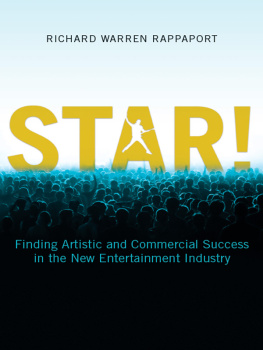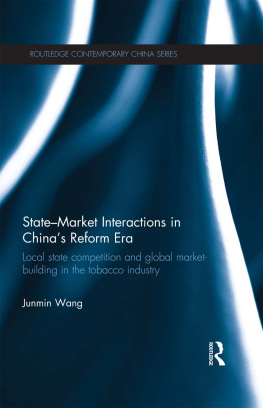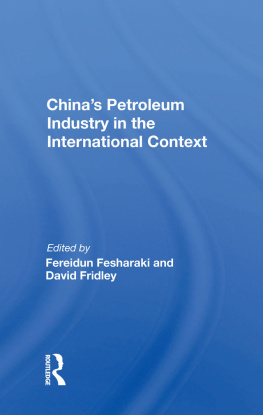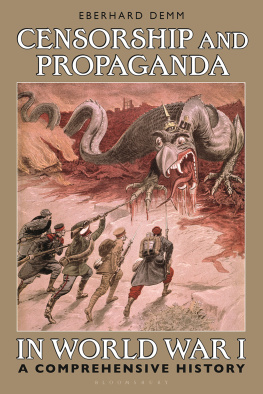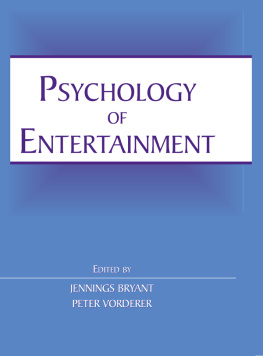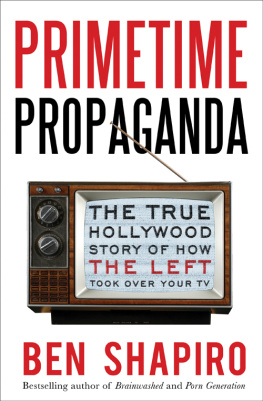
State Propaganda in Chinas Entertainment Industry
Most current research on the evolution of Chinas propaganda discourse only touches upon recent variations of official propaganda rhetoric grounded in popular media. Here, the research is extended by tapping into the most recently released popular cultural media narratives such as online documentaries, films, TV drama serials and education programs, all of which are enlisted and co-opted by the state for propaganda goals.
This book maps out the cutting-edge expansions of official propaganda that are embedded in the entertainment industry of contemporary China. Its case studies bring to light the progression of the mainstream propaganda discourse in terms of its merging, cooperation and compromise with the commercial features of both the traditional and the newly emerging entertainment media. In particular, it examines a group of mass entertainment products which include two bestselling mainstream blockbusters, two online commercial web documentaries, the China Central Television Moon Festival Gala series, revolutionary nostalgia TV drama serials, and a prime time science and education program. In so doing, it forefronts the up-to-date developments and novelties of state propaganda: its motives, reasoning and approaches within the media sphere of todays China.
Illustrating how the CCP (Chinese Communist Party) propaganda apparatus and tactics evolve and become embedded in popular media products, this book will be of interest to students and scholars of Chinese Studies, Media Studies and Popular Cultural Studies.
Shenshen Cai is a lecturer in Chinese Studies at the University of Melbourne, Australia. She has recently published articles in journals such as Social Semiotics (2015), Asian Studies Review (2016), and Asian Theatre Journal (2016).
Routledge Contemporary China Series
For a full list of titles in this series, please visit www.routledge.com
145The Identity of Zhiqing
The lost generation
Weiyi Wu and Fan Hong
146Teacher Management in China
The transformation of educational systems
Eva Huang, John Benson and Ying Zhu
147Social Entrepreneurship in the Greater China Region
Policy and cases
Yanto Chandra
148Chinas Approach to Central Asia
The Shanghai Co-operation Organisation
Weiqing Song
149Chinas Peasant Agriculture and Rural Society
Changing paradigms of farming
Jan Douwe van der Ploeg and Jingzhong Ye
150Chinas Changing Economy
Trends, impacts and the future
Edited by Curtis Andressen
151Chinas Energy Security
A multidimensional perspective
Edited by Giulia Romano and Jean-Franois Di Meglio
152Chinese Muslims and the Global Ummah
Islamic revival and ethnic identity among the Hui of Qinghai Province
Alexander Blair Stewart
153State Propaganda in Chinas Entertainment Industry
Shenshen Cai
State Propaganda in Chinas Entertainment Industry
Shenshen Cai
First published 2016
by Routledge
2 Park Square, Milton Park, Abingdon, Oxon OX14 4RN
and by Routledge
711 Third Avenue, New York, NY 10017
Routledge is an imprint of the Taylor & Francis Group, an informa business
2016 Shenshen Cai
The right of Shenshen Cai to be identified as author of this work has been asserted by her in accordance with sections 77 and 78 of the Copyright, Designs and Patents Act 1988.
All rights reserved. No part of this book may be reprinted or reproduced or utilised in any form or by any electronic, mechanical, or other means, now known or hereafter invented, including photocopying and recording, or in any information storage or retrieval system, without permission in writing from the publishers.
Trademark notice: Product or corporate names may be trademarks or registered trademarks, and are used only for identification and explanation without intent to infringe.
British Library Cataloguing in Publication Data
A catalogue record for this book is available from the British Library
Library of Congress Cataloging-in-Publication Data
Names: Cai, Shenshen, author.
Title: State propaganda in Chinas entertainment industry / Shenshen Cai.
Description: Milton Park, Abingdon, Oxon ; New York : Routledge, 2016. | Series: Routledge contemporary China series ; 153 | Includes bibliographical references and index.
Identifiers: LCCN 2016001395 | ISBN 9781138639614 (hardback) | ISBN 9781315637082 (ebook)
Subjects: LCSH: Mass media and propagandaChina. | Mass mediaPolitical aspectsChina. | Performing artsPolitical aspectsChina. | Politics and cultureChina. | Propaganda, ChineseHistory21st century. | NationalismChinaHistory21st century.
Classification: LCC P96.P722 C635 2016 | DDC 303.3/750951dc23
LC record available at http://lccn.loc.gov/2016001395
ISBN: 978-1-138-63961-4 (hbk)
ISBN: 978-1-315-63708-2 (ebk)
Typeset in Times New Roman
by Apex CoVantage, LLC
Contents
I would like to express my sincere gratitude to Dr William Lakos (Bill) and Dr Emily Dunn for their kind help and advice during the writing process of this book. Bill was my sharp-eyed critic and insightful interlocutor, who provided enormous help in terms of polishing my arguments, editing my grammar, and most importantly being finicky with my mistakes and errors, and he contributed much to the completion of this work. He has been my mentor since our time together at the University of Tasmania, where I started my PhD research. Bill generously dedicated his time and help as a true friend and colleague.
I would also like to thank Emily for her careful editing of some of the chapters, which I know is time-consuming and tedious. Also, I would like to thank the Asian Studies editors at Routledge Ms Stephanie Rogers and Ms Rebecca Lawrence for their kind support during the reviewing and production process of the book. Finally, and most importantly, I want to thank my family for accompanying me during the writing process of the manuscript.
The author thanks the following publishers for granting permission to reprint material from the following articles. They include: Shenshen Cai, The Cultural Representation and Politics of the Chinese Moon Festival Gala: Nostalgia, Romance and Nationalism (East Asia: An International Quarterly 31, 3 [2014], 249267), some sections of which are included in .
Since the beginning of the Peoples Republic of China (PRC), propaganda has been an integral part of the Chinese Communist Partys (CCP) strategy of political control and ideological manipulation. The government promotes its policies through the news media and also through other means such as study groups and workshops organized by government institutions and work units; however, the state propaganda machine is also very adroit at utilizing mass entertainment to publicize official doctrine and spread Party ideology. The CCPs inventive and adept appropriation of popular artistic forms, such as the New Yangge Movement (xin yangge yundong) that was launched in the Shan-gan-ning area in the 1930s and 1940s before the CCP took over rule of mainland China, demonstrated how the north Chinese peasant dance-drama yangge underwent dramatic political transformations in the hands of the communist propagandists in their attempt to realize the Maoist goal of facing the masses (You 2012: 260). Since the beginning of communist rule of China, the CCP propaganda continues this tradition of appropriating a wide range of mass cultural and entertainment practices to mobilize and educate the masses of Chinese people. Consequently, a plethora of mass entertainment and popular cultural activities and pursuits have been employed as a practical tool by the official propaganda bodies. These cultural forms include collective dancing, revolutionary films, celebratory events, Peking Opera, folk literature, and performing arts forms such as storytelling (




